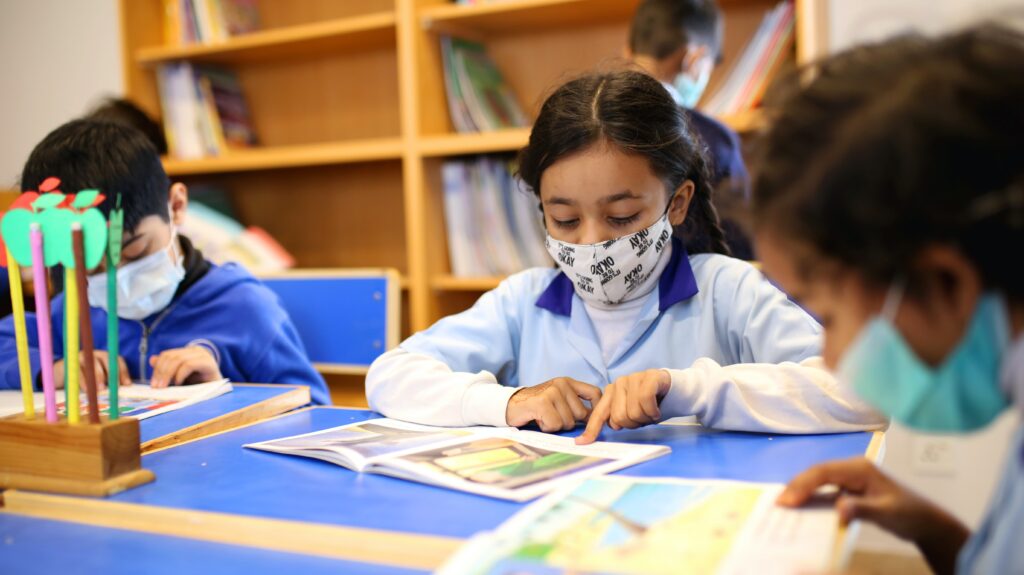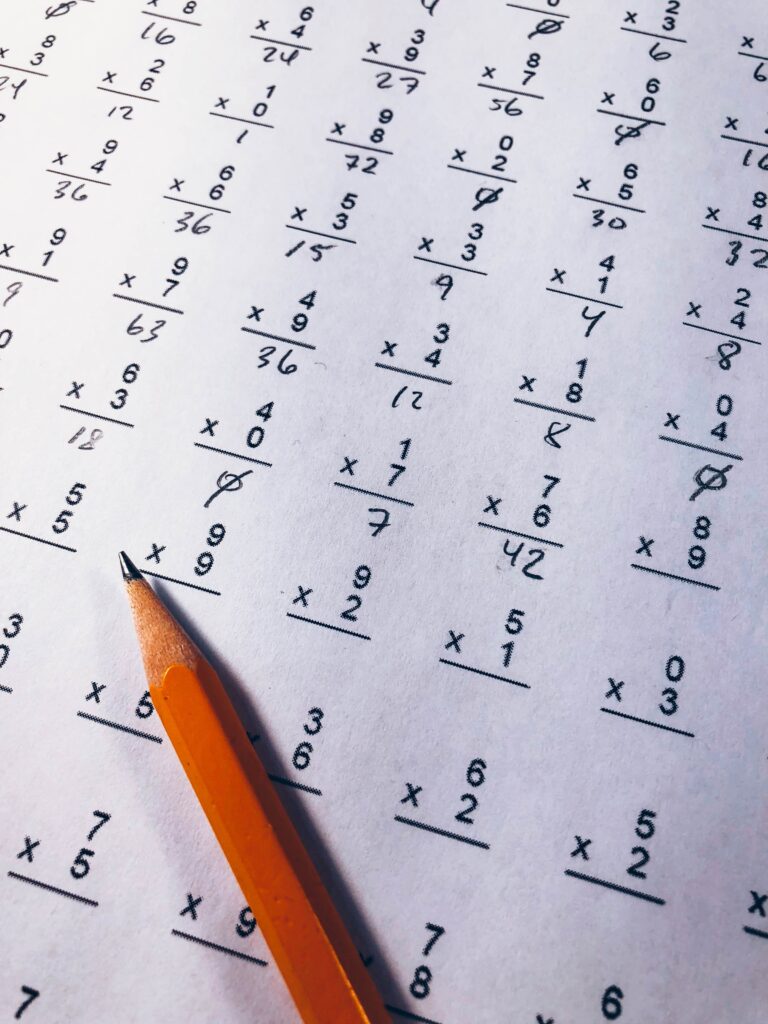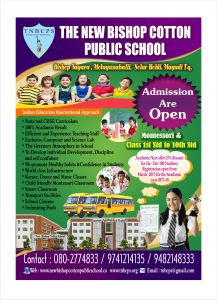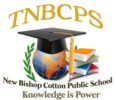primary programme
The nurturing of a child’s academic curiosity and development must be at the centre of what any school seeks to achieve.
In preparing our curriculum, we have sought out the best practices in national and international teaching programmes and examination boards. The information given here outlines the broad aims of our teaching at different levels in order to provide an idea of how a child will progress at NEW BISHOP COTTON PUBLIC SCHOOL .

Primary And Middle School Program
The Primary School Programme at NEW BISHOP COTTON PUBLIC SCHOOL comprises of classes I to IV. The Middle School Programme covers classes V to VII.
In classes I to VII, the School follows an integrated curriculum, drawing on the programmes of the CBSE board . The School is a member of the NCERT Primary Programme.
The school time is as under:
PRIMARY & MIDDLE SCHOOL TIME
The time schedule has taken into account the schedule of co-curricular activities for classes I to VII.

Curriculum (Classes I to IV)

In classes I to IV, the focus is on encouraging inquiry, exploration and on inculcating confidence in key learning skills – reading, writing, listening, speaking, information technology capability, problem-solving, observation and measurement. Children are encouraged to speak and perform at assemblies, concerts, drama productions, and thus gain confidence in their ability to communicate to a wider audience.
We recognize that children at this level are active, curious, experimental, imaginative, talkative and, above all, disconcertingly frank. Each child is an individual with his or her own unique abilities, interests, aspirations and expectations. Therefore, our curriculum in these classes is structured to encourage and motivate them to become self-confident, self-reliant and self-disciplined, and thus help them achieve full potential. The School seeks to achieve this through a variety of curricular and co-curricular programmes.
Children learn and develop through:
A number of informal methods like activities, projects, presentations and hands-on experiences, apart from formal learning;
Activities like free play, dramatization, enacting through puppets, singing, dancing, cooking, art, and so on;
Outdoor and indoor play and games;
Sharing ideas with other children and discovering facts for themselves through observation and reference work;
Exciting experiential learning opportunities through field trips which are planned for specific educational purposes;
Exploring and reading books, newspapers and magazines, thus enhancing their knowledge and inculcating in them an interest to be learning-oriented while appreciating the value of reading and research;
An appropriate balance of whole group, small group and individual activities, which cater to individual differences in learning;
An inter-disciplinary appreciation of Language, Mathematics, Social Studies and Science by learning as individual subjects as well as in an integrated way;
Physical education, which improves health and fitness, while enjoying the recreational value it offers;
Exposure to team and individual sports, competitive and non-competitive, which encourages sportsmanship and a school-wide community spirit and a feeling of individual accomplishment;
The ICT Award Computer Course, which introduces students to the concept and reality of information and communication technology and provides a framework in which practical skills and knowledge can be acquired and developed;
A supportive learning environment where individual needs are addressed in a positive and inclusive way; Opportunities in Dance, Fine Arts, Theatre, Western and Indian Music, Speech and Drama and Yoga, which facilitate a well-rounded development. These are part of the regular curriculum, and are also being offered as co-curricular and core activity programmes;
Participation in co-curricular activities, which are held on Saturdays for one hour. Students who show special interest or are specially talented in any sporting or non-sporting areas are offered further opportunities through the core activity programme, so that they are able to excel in such areas and also enhance their readiness to take part in competitions and tournaments outside of school;
Celebration of the changing rhythms of the year through a variety of festivals and activities. These are celebrated through whole-school assemblies, play performances, special holidays and functions, which help children in meaningful bonding and appreciation of such festivals.
